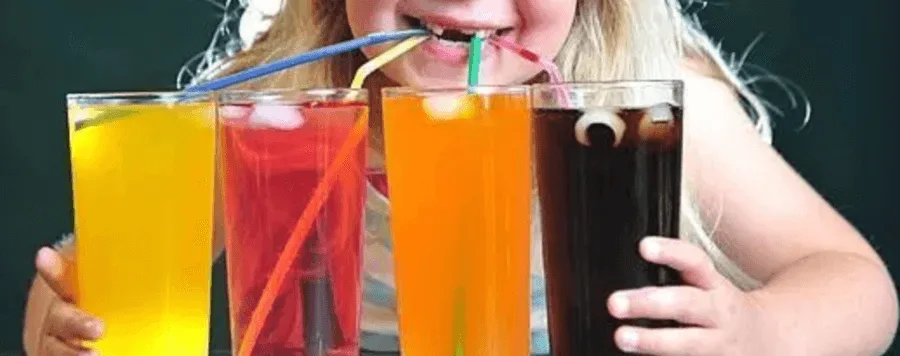In July 2019, England became one of the first countries in the world to announce that they will ban energy drinks for children under 16 years of age.
Previously, Lithuania and the UAE have introduced bans of their own, but neither got nearly as much media attention as the English ban did.
Since then, we’ve seen South Korea ban coffee in schools, and Countdown, a major grocery store in New Zealand self-impose their own ban on energy drink sales to children, even though it wasn’t mandated by New Zealand law…. yet.
In this article, I’m going to talk about why more countries should ban energy drinks for children and how the bans that are already in place don’t go far enough.
I’m not alone in thinking this way, I interviewed health experts and subject matter opinion leaders in the course of creating this article.
However, in the interest of balance, I’ll also put forth the counter-argument and some of the narrative around why these bans don’t make sense.
Let’s get started…
Which countries have already banned energy drinks for children?
England, Lithuania, and the UAE have already banned energy drinks for children.
The precedent has been set by these nations and other countries would be putting the best interests of their children first by doing the same.
What do the current bans mean?
In both the United Kingdom and UAE, any child younger than 16 years of age is not able to legally buy an energy drink.
In Lithuania, the age limit is 18 years.
Any child aged 16 can buy an energy drink in England or the UAE. In Lithuania, a person needs to be 18 years of age to buy an energy drink.
How do energy drinks affect children?
Energy drinks can be harmful to children because they are still growing and developing. The concerning ingredients are caffeine and sugar, but not all energy drinks contain sugar.
The caffeine in energy drinks is especially concerning, but many energy drinks are also full of sugar as well, which might be equally problematic for growing bodies.

The science supports this, according to Sachin A. Shah PharmD, who says, “based on science, it would seem prudent to limit energy drink consumption for children”.
Have any children died because of energy drinks?
Yes, tragically, there have been some deaths of children linked to energy drinks.
In 2017, a 16-year-old died after drinking a coffee, a Moutain Dew, and an energy drink within a 2-hour period.
The parents of that child are now supporters of a push to put in place age restrictions for the purchase of energy drinks.
In another incident, a 14-year-old died after allegedly drinking two cans of Monster.
Do the current bans go far enough?
No, I think these bans are not sufficient and should be extended to cover older children and a wider range of products.
In my opinion, an age limit of 18 would be more appropriate than 16.
The main reason for limiting energy drinks to children is that their bodies have not developed enough to properly metabolize the caffeine.
Well, a child who has only just turned 16 is still growing and developing. I think adding an extra 2 years would be much safer.
Besides, what’s the big rush to start drinking energy drinks? You’ve got your entire adult life to drink them if your heart desires.
What about the other side of the argument?
Not everyone agrees that banning energy drinks for minors is a good idea.
Some people, such as Christopher Snowdon are outspoken critics of the bans:
“Governments that have banned the sale of energy drinks to minors have never given a satisfactory explanation of what it is they are trying to achieve.
If caffeine is the issue, they should also be banning the sale of other caffeinated drinks, many of which have more caffeine than a Red Bull. If it is the sugar that is the problem, they should be ban all sugary drinks.

There are other ingredients in energy drinks, but none of them seems hazardous to children or adults.
These products have been around for a quarter of a century but it is only recently that they have become the target of a moral panic. I can see no scientific justification for it.”
Mr Snowdon certainly isn’t alone in being critical of the bans. Several others have raised concerns that the bans are unscientific and don’t make sense.
Others still seem lukewarm on the ban and don’t seem to have a strong opinion one way or another.
Martyn Fisher of the British Soft Drinks Association says, “Energy drinks and their ingredients have been deemed safe by regulatory authorities around the world.”
Our members do not market or promote energy drinks to those under 16, nor do they sample products with this age group.
In addition, energy drinks carry an advisory note stating ‘Not recommended for children. This is all in line with our long-standing Code of Practice.’ We remain committed to supporting the responsible sale of energy drinks.”
What about other caffeinated products?
If we take a step back for a moment and look at the reason for banning energy drinks for children, it’s mostly about the caffeine content. With that in mind, I think these bans should be extended to cover all caffeinated products, including coffee, tea, soda drinks, and chocolate.
If caffeine is the issue, why stop at energy drinks if we are serious about protecting children and looking out for their safety?
Let’s stop the double standard.
If caffeine is dangerous for children, we should take steps to ban all sources of caffeine for sale to minors.
Furthermore, here’s what the FDA recommends you take your caffeine.
| Age | Recommended Daily Amount |
| Kids | 60-80 mg |
| Teenagers | 100 mg |
| 18 and above | 400 mg |
Loopholes with the bans
Sure, a store owner may have been told to check for ID before selling an energy drink, but does Amazon check your age before you buy something online?
What about all of the other energy drink brands that allow you to buy directly from their site?
I won’t mention any names here, but I can think of a couple of brands that appear to be directly targeting the teenage demographic with their energy drink products.
I really doubt they are screening people based on age in their checkout process.
Canadian rules for energy drinks and children
I contacted Health Canada for a statement on the topic. Their reply included the following (words in quotation marks are from their statement, the rest is mine)
“Health Canada has introduced measures to ensure the safe consumption of CEDs (caffeinated energy drinks) by Canadians, including vulnerable populations such as children.”
Also, there is a “prohibition on marketing these products to children”, although children in Canada are still free to walk into a convenience store and buy a can of energy drink because there are no actual bans in place.
Interestingly, no single serving of energy drink may contain more than 180mg of caffeine in Canada. Many of the most popular brands in the US would not be legal there given this law.
“A strict limit on the caffeine content. For a single-serving container, the maximum amount of caffeine cannot exceed 180 mg” according to Health Canada.
What can you do to help?
If you want to help accelerate the process of more countries banning energy drinks for children, you can become more active in talking about the issue online.
At the very least, simply share this article on social media and tag the politicians or health industry leaders that you think have the power to take action.

Summary
I know that at some point in the future, people will look back on the days when a child younger than 16 could walk into a store and buy an energy drink with disbelief.
That day is definitely coming. But it’s not here yet.
Eventually, it will seem as ridiculous as other things that have seen major legislative changes over the past century in many parts of the world such as smoking regulations, drunk driving, or speeding in a car.
But it requires a shift in mindset and enough public awareness to get the changes that we want.
Until we reach the point that a child can’t buy an energy drink, young lives may be at risk.
If you also support more countries banning energy drinks, please do your part to increase awareness by tagging politicians, journalists, and health industry leaders on social media with a link to this article.
If enough of us do it, together we might be able to accelerate legislative changes and save young lives.
I want to acknowledge and give special thanks to the following expert contributors to this article. Without their help, this wouldn’t have been possible:
- Sachin A Shah, Pharmacology Professor at the University of the Pacific
- Christopher Snowdon, Head of Lifestyle Economics at the Institute of Economic Affairs
- Martyn Fisher, Spokesman at the British Soft Drinks Association
- Health Canada Food Directorate

